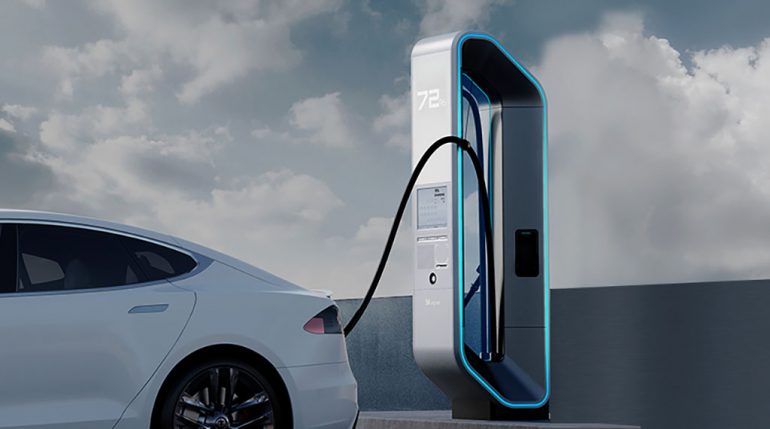
On Thursday, SK Signet announced its plans to introduce electric-vehicle chargers that are compatible with Tesla’s technology. This move comes in response to recent developments by major automakers such as Ford and GM, who have adopted Tesla’s North American Charging Standard (NACS). By incorporating Tesla’s charging design, SK Signet aims to appeal to a wider customer base and prevent potential loss of customers to charging companies that offer only the Combined Charging System (CCS) supported by automakers like Volkswagen and Hyundai Motor.
As a provider of charging solutions for charging station operators like Electrify America and EVgo, SK Signet has already begun the development of ultra-fast chargers. These chargers will have the capability to simultaneously charge electric vehicles (EVs) using both NACS and CCS standards. The decision to support both standards align with the company’s commitment to expanding charging options for EVs, including those with NACS standards. This expansion is crucial for the development of a robust charging network in the United States, an objective that has gained support from the White House.
Also, don’t forget that you can get discounted new car pricing with a free quote through qualified local dealer partners.
In fact, the White House recently announced that EV charging stations offering Tesla plugs would be eligible for substantial federal subsidies, provided they also include CCS connectivity. This move by the White House aims to incentivize the deployment of hundreds of thousands of chargers, recognizing their importance in facilitating the widespread adoption of electric vehicles.
Seung-June Oh, the president of SK Signet America, expressed the company’s dedication to expanding charging options for EVs in support of the growing U.S. charging network. SK Signet, which was acquired by South Korea’s SK Group in 2021, is a significant player in the charging equipment manufacturing industry. In a recent development, the company inaugurated its first manufacturing center in Texas earlier this month. With a production capacity exceeding 10,000 ultra-fast chargers per year, this facility will contribute to meeting the increasing demand for EV charging infrastructure.
Source: Reuters